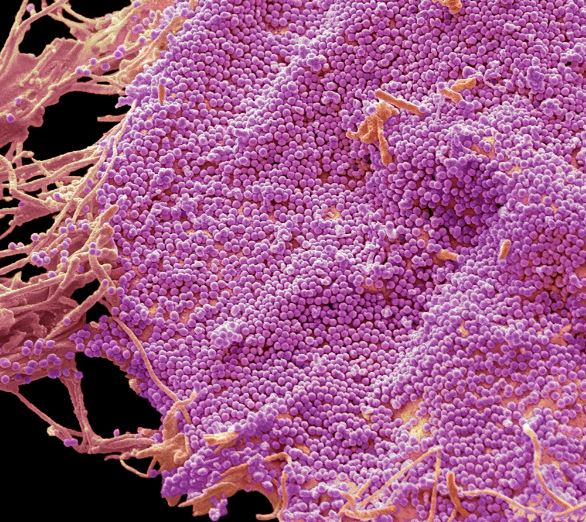Scientists have unveiled a groundbreaking approach to fighting HIV by developing a molecular mimic that invades cells and effectively steals essential proteins from the virus. This innovative strategy, detailed in a recent study published in Science, has shown promising results in preventing HIV from multiplying within monkeys, and the next step is to test this new therapy in humans.
The research team, led by virologist Leor Weinberger from the University of California, San Francisco, has announced plans to begin trials on human volunteers in the near future. “This is imminent,” Dr. Weinberger stated, highlighting that four or five individuals living with HIV will receive a single injection of the engineered virus as part of the initial testing phase.
HIV typically infects an immune cell by integrating itself into the host’s DNA, using the cell’s machinery to replicate and spread, eventually overwhelming the immune system and leading to AIDS. For years, HIV treatment has focused on drugs that target the virus directly. For instance, protease inhibitors prevent a protein crucial for HIV’s lifecycle from being activated, and more recently, the drug lenacapavir has been shown to block the proteins forming the virus’s protective shell. A recent study revealed that lenacapavir, when injected twice a year, could maintain the virus at low levels in the bloodstream.
However, Dr. Weinberger’s approach is markedly different. Twenty years ago, he began exploring the idea of creating an impostor virus, which would interfere with HIV’s natural lifecycle. Initially, the concept was met with skepticism.
Through years of research, Dr. Weinberger and his team developed what they now call therapeutic interfering particles, or TIPs. These particles contain about half the genetic material of a typical HIV virus. The TIPs can infect human immune cells, inserting their genes into the DNA, but unlike HIV, they cannot produce new virus particles on their own. However, when HIV is present, TIPs can hijack the cell’s machinery, allowing them to replicate alongside HIV. The TIPs are engineered to outcompete HIV for the cell’s resources, leading to the production of more TIPs than actual HIV particles.
In laboratory experiments, TIPs demonstrated a remarkable ability to suppress HIV replication. When tested on monkeys infected with a primate version of HIV, the TIPs reduced the virus levels by a factor of 10,000. Most of the treated monkeys survived without developing AIDS, and appeared healthy based on all available measures, according to Dr. Weinberger.
Encouraged by these results, Dr. Weinberger’s team is moving forward with human trials. The initial participants will be individuals living with HIV who are also terminally ill with other conditions such as cancer. If these early tests are successful, the trials will expand to include HIV-positive individuals who are not terminally ill. The researchers are optimistic that TIPs could reduce the HIV count in humans as effectively as it did in monkeys.
Dr. Weinberger also sees potential for TIPs to provide an affordable treatment option for people in low-income countries, where the cost of current HIV therapies, like daily protease inhibitors or even biannual injections of lenacapavir, can be prohibitively expensive. The idea is that a single injection of TIPs could maintain low HIV levels indefinitely, potentially preventing the onset of AIDS and reducing the likelihood of HIV transmission.
The study has generated excitement in the scientific community. Asher Leeks, a virologist at Yale University not involved in the research, praised the work as a significant advancement in the field of “cheating viruses”—viruses designed to interfere with other viruses. While these have been studied for decades, only recently have researchers like Dr. Weinberger begun exploring their potential as therapeutic agents. Dr. Leeks suggested that this approach could be applied to other viruses as well, calling it “a universal approach to developing antivirals.”
However, the introduction of TIPs into human treatment raises important ethical concerns. Ben tenOever, a virologist at New York University, pointed out that because TIPs integrate into the DNA of a patient’s immune cells, they become a permanent part of the body. If unforeseen side effects arise, removing the TIPs may be impossible. Moreover, there is a possibility that TIPs could be transmitted to others, raising issues about consent and the broader implications of such treatments.

